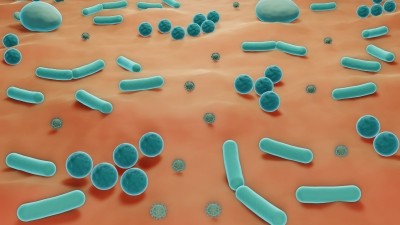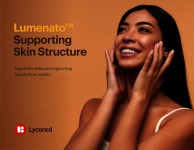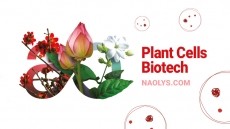Messenger cells from human umbilical emerge as potential ingredient for anti-ageing cosmetics

Extracellular vesicles (EVs) are tiny, membrane-enclosed structures facilitating the transport of diverse molecules including proteins, nucleic acids, and lipids, between cells.
Previous studies demonstrated that UCMSC-EVs can suppress the production of pro-inflammatory proteins and management of allergic disorders.
While the precise mechanisms of how EVs promote wound healing remain unknown, their inherent non-immunogenic nature positions them as an excellent choice for emerging therapies.
In this Taiwan biomedical firm Exoone Bio-led study, researchers examined UCMSC-EVs as a foundational material for developing new cosmetic products aimed at regenerating and repairing of skin.
UCMSC-EVs against oxidative stress and inflammation
HaCaT cell derived from human skin were exposed to varying dose of UCMSC-EVs before treatment with oxazolone, a chemical triggering immune responses in skin.
The levels of reactive oxygen species (ROS) in the HaCaT cells were measured. An excessive or insufficient production of ROS believed to damage cells and is implicated in various diseases and ageing process.
The presence of oxazolone will lead to a notable increased in ROS but researchers found that pre-treatment of HaCaT cells with UCMSC-EVs significantly reduced ROS levels. The decrease is more apparent with higher EV concentration.
At the same time, exposure to oxazolone activated the pro-inflammatory factor p65 and minimised stress protectors SIRT1 and p53 in HaCaT cells. However, pre-treatment with UCMSC-EVs reversed this trend, causing a significant increase in SIRT1 and p53 levels and a decline in p65 levels. This led to a reduced inflammation.
These findings suggest that UCMSC-EVs effectively mitigate oxazolone-induced inflammation and modulated these responses partially through SIRT1, p65, and p53.
Kick-off 2024 by discovering the trends shaping the next generation of beauty consumers. Join us at the Beauty Forward 2024 digital summit taking place January 29 to 31. Register here for FREE now.
UCMSC-EVs’ role in skin regeneration
While the precise mechanisms of how UCMSC-EVs are transferred and sustained within skin cells remain unclear, the study revealed that the observed anti-inflammatory effect in skin cells may be linked to the internalisation of EVs.
In addition, skin cells treated with EVs exhibited a significant acceleration in wound closure compared to the control group that has not been exposed to UCMSC-EVs. UCMSC-EVs also demonstrated effective defence against oxidative stress by increasing p53 levels.
Collectively, these findings underscore the potential of EVs as valuable tools in promoting wound healing and rejuvenating injured skin areas.
“However, a further in-depth validation of their role is required.” Researchers wrote. “[Even though] this study provides the first evidence that UCMSC-EVs have the potential to be effective and safe interventions for wound therapeutics.”
Source: International Journal of Molecular Sciences
Human Umbilical Cord Mesenchymal-Stem-Cell-Derived Extracellular Vesicles Reduce Skin Inflammation In Vitro
https://www.mdpi.com/1422-0067/24/23/17109
Authors: Tzou-Tien Lin et al.

![[LG H&H]](/var/wrbm_gb_food_pharma/storage/images/_aliases/wrbm_medium/publications/cosmetics/cosmeticsdesign-asia.com/headlines/formulation-science/skin-science-top-five-stories-on-cosmetics-science-and-formulation9/16897986-1-eng-GB/Skin-science-Top-five-stories-on-cosmetics-science-and-formulation.jpg)







![[Getty Images]](/var/wrbm_gb_food_pharma/storage/images/_aliases/wrbm_tiny/publications/cosmetics/cosmeticsdesign-asia.com/china/china-focus-latest-developments-in-china-s-booming-beauty-market22/17370102-1-eng-GB/China-focus-Latest-developments-in-China-s-booming-beauty-market.jpg)
![YSL's LoveShine launch has sparked a demand surge in Japan. [YSL]](/var/wrbm_gb_food_pharma/storage/images/_aliases/wrbm_tiny/publications/cosmetics/cosmeticsdesign-asia.com/article/2024/04/24/ysl-loveshine-launch-propels-lip-gloss-sales-to-record-highs-in-japan-since-2020/17372064-1-eng-GB/YSL-LoveShine-launch-propels-lip-gloss-sales-to-record-highs-in-Japan-since-2020.jpg)
![There is significant scope for innovation and new launches in the hair repair sector, especially in soaring markets such as China. [Getty Images]](/var/wrbm_gb_food_pharma/storage/images/_aliases/wrbm_tiny/publications/cosmetics/cosmeticsdesign-asia.com/article/2024/04/24/croda-zeroes-in-on-hair-repair-solutions-as-damage-hair-concerns-surge-in-markets-like-china/17362731-1-eng-GB/Croda-zeroes-in-on-hair-repair-solutions-as-damage-hair-concerns-surge-in-markets-like-China.jpg)



![Lubrizol has extended its partnership with C-beauty major PROYA. [PROYA]](/var/wrbm_gb_food_pharma/storage/images/_aliases/wrbm_tiny/publications/cosmetics/cosmeticsdesign-asia.com/headlines/brand-innovation/lubrizol-bullish-on-potential-of-c-beauty-growth-potential/17362515-1-eng-GB/Lubrizol-bullish-on-potential-of-C-beauty-growth-potential.jpg)


